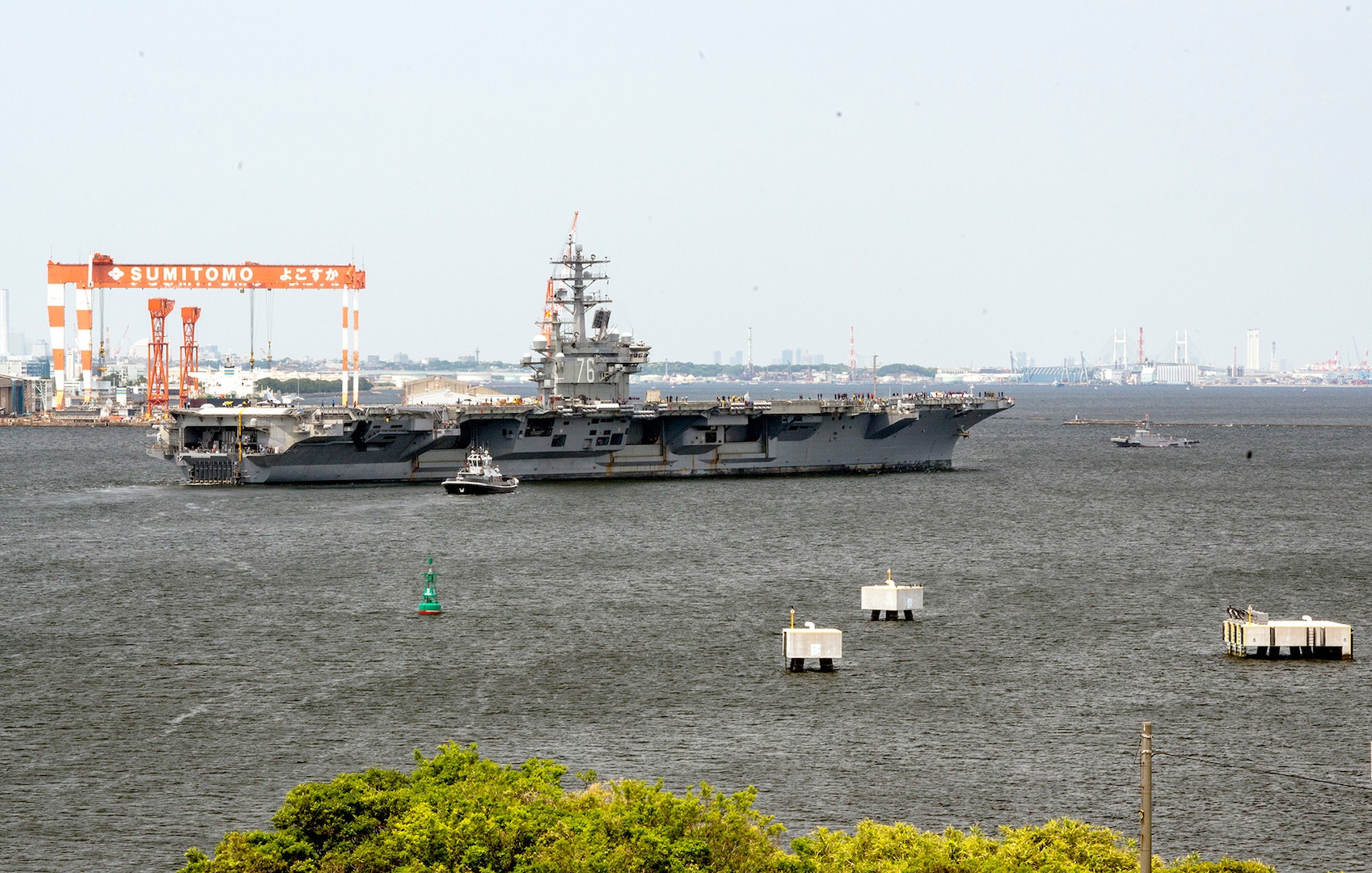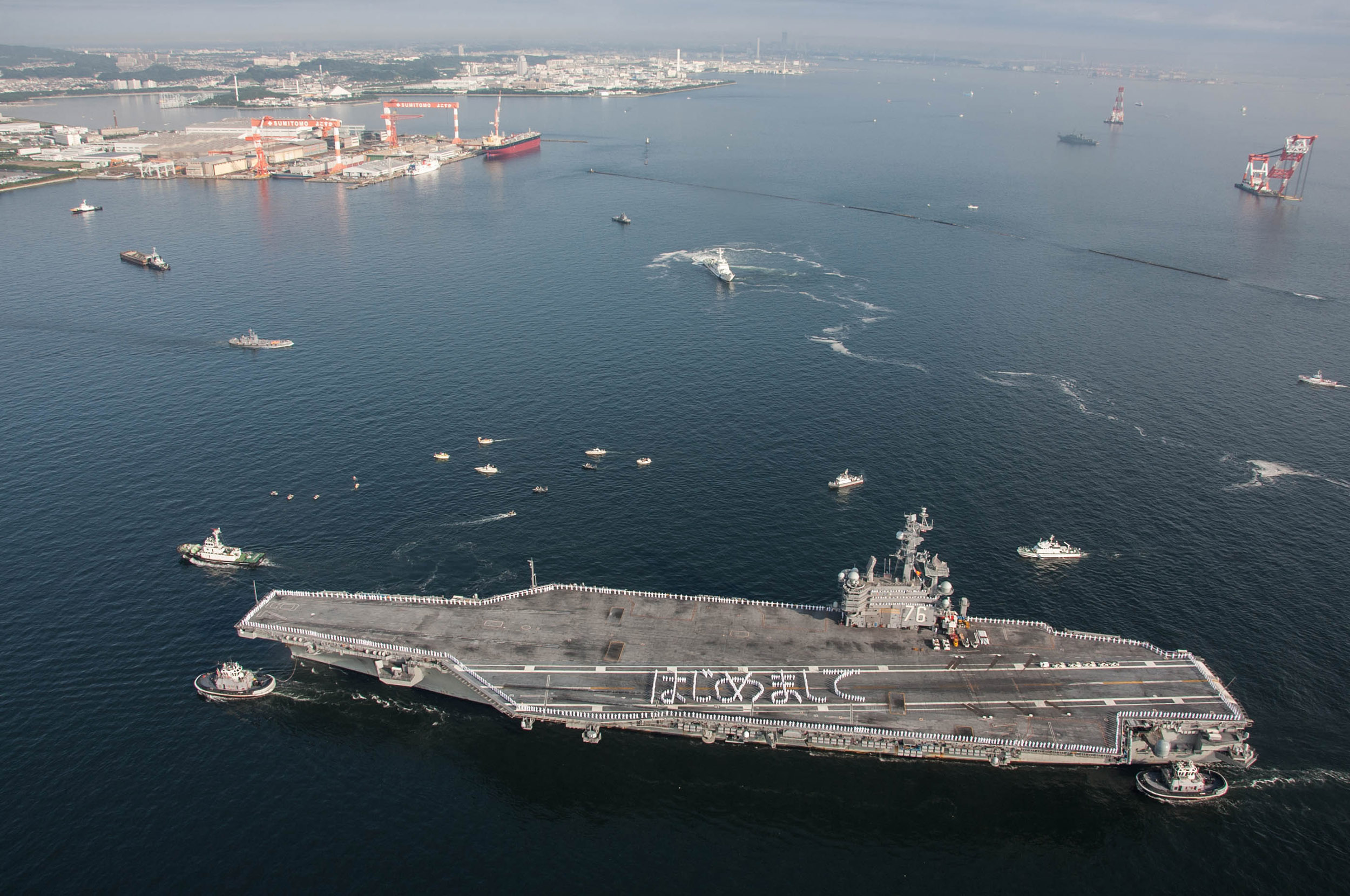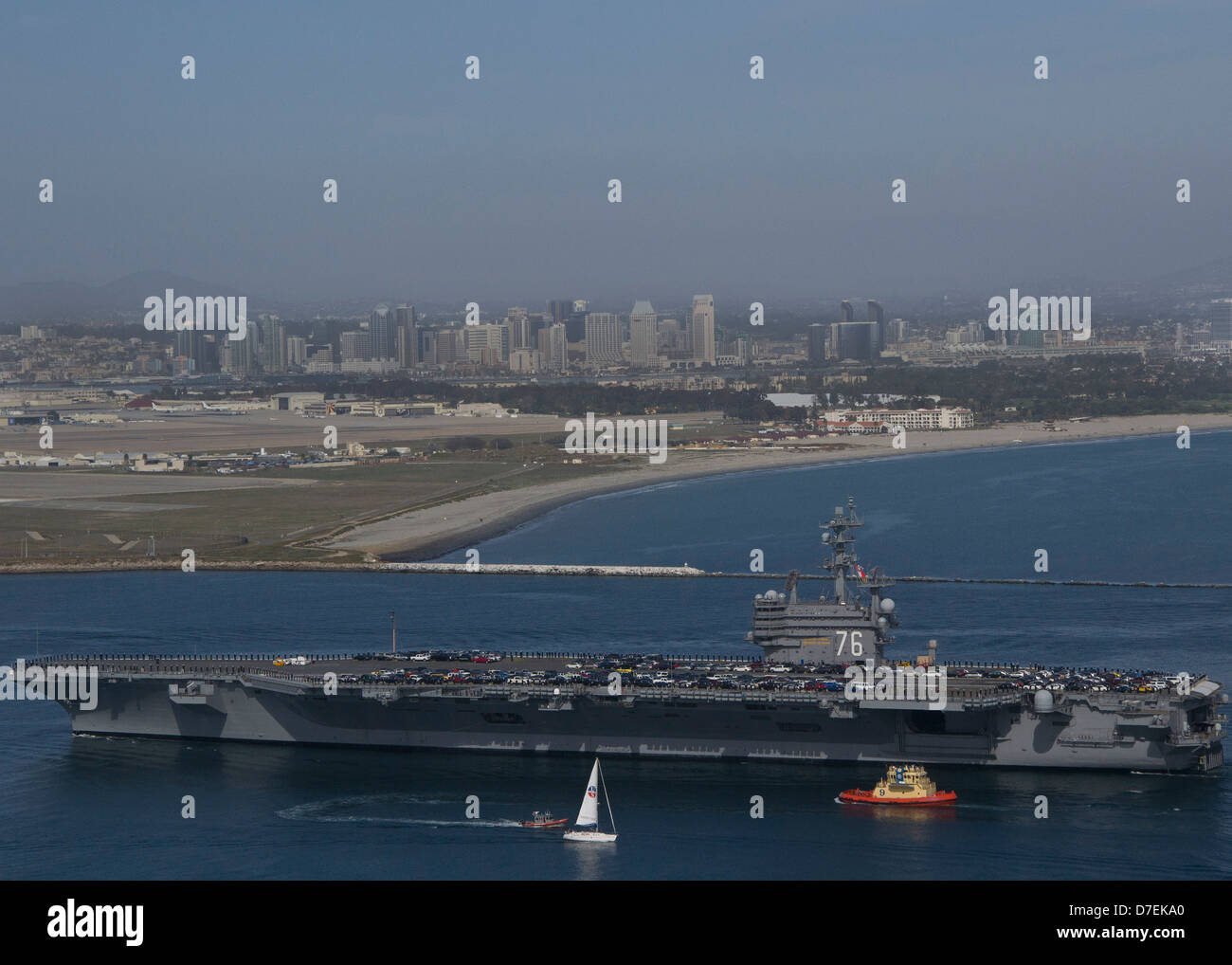USS Ronald Reagan Sunk: Fake News or Credible Threat?

The Sinking of USS Ronald Reagan: Separating Fact from Fiction

In recent days, a flurry of news articles and social media posts have emerged claiming that the USS Ronald Reagan, a Nimitz-class aircraft carrier of the United States Navy, has been sunk. However, these reports have been met with widespread skepticism, and many have questioned their validity. So, what exactly happened? Was the USS Ronald Reagan indeed sunk, or is this just another example of fake news?
Understanding the USS Ronald Reagan

Before we dive into the details, it’s essential to understand the USS Ronald Reagan and its significance. The USS Ronald Reagan (CVN-76) is a Nimitz-class aircraft carrier that has been in service since 2003. With a displacement of over 100,000 tons and a length of 1,092 feet, it is one of the largest warships in the world. The USS Ronald Reagan is equipped with advanced radar systems, missile defense systems, and can carry over 60 aircraft.
The Incident

According to reports, the USS Ronald Reagan was allegedly sunk on November 15, 2022, while conducting naval exercises in the South China Sea. The incident supposedly occurred when the ship was struck by a Chinese missile, resulting in significant damage and loss of life. However, these claims have not been substantiated by any credible sources, including the United States Navy or the Pentagon.
Debunking the Rumors

So, why do we believe that these reports are likely exaggerated or entirely fabricated? Here are a few reasons:
- Lack of official confirmation: The United States Navy and the Pentagon have not released any statements confirming the sinking of the USS Ronald Reagan.
- No credible sources: The reports of the USS Ronald Reagan’s sinking have been based on unverified sources, including social media posts and untrustworthy news outlets.
- Inconsistencies in the narrative: The stories surrounding the incident have been inconsistent, with some reports claiming that the ship was sunk by a Chinese missile, while others claim that it was a cyberattack.
- No visual evidence: Despite the widespread availability of satellite imaging and other forms of surveillance, there is no visual evidence to support the claims that the USS Ronald Reagan has been sunk.
🚨 Note: The lack of credible sources and official confirmation does not necessarily mean that the incident did not occur. However, it is essential to approach such reports with a healthy dose of skepticism until verified by trusted sources.
The Implications of Fake News

The spread of misinformation and fake news can have significant implications, both domestically and internationally. In this case, the false reports of the USS Ronald Reagan’s sinking could have led to:
- Escalation of tensions: The spread of false information could have contributed to increased tensions between the United States and China, potentially leading to further conflict.
- Erosion of trust: The dissemination of misinformation can erode trust in institutions and the media, making it more challenging to discern fact from fiction.
- Unintended consequences: The spread of false information can have unintended consequences, including the potential for panic, confusion, and instability.
Verifying Information in the Digital Age

In today’s digital landscape, it’s more important than ever to verify information before sharing it. Here are some tips to help you separate fact from fiction:
- Check credible sources: Verify information through trusted sources, such as official government websites, reputable news outlets, and established fact-checking organizations.
- Be cautious of sensational headlines: Be wary of headlines that seem too good (or bad) to be true. Clickbait and sensationalism can be used to spread misinformation.
- Watch for inconsistencies: Be cautious of stories that have inconsistencies or contradictions.
- Use fact-checking websites: Utilize fact-checking websites, such as Snopes or FactCheck.org, to verify the accuracy of information.
Conclusion

In conclusion, while the reports of the USS Ronald Reagan’s sinking have been alarming, they remain unverified and lack credible evidence. It’s essential to approach such reports with skepticism and verify information through trusted sources. By doing so, we can mitigate the spread of misinformation and ensure that we are informed by accurate and reliable information.
What is the current status of the USS Ronald Reagan?

+
The USS Ronald Reagan is currently in service and has not been sunk. The United States Navy has not released any statements confirming the sinking of the ship.
Why are the reports of the USS Ronald Reagan’s sinking likely fake news?

+
The reports of the USS Ronald Reagan’s sinking are likely fake news due to the lack of credible sources, inconsistencies in the narrative, and the absence of visual evidence.
How can I verify information in the digital age?

+
To verify information, check credible sources, be cautious of sensational headlines, watch for inconsistencies, and use fact-checking websites.



